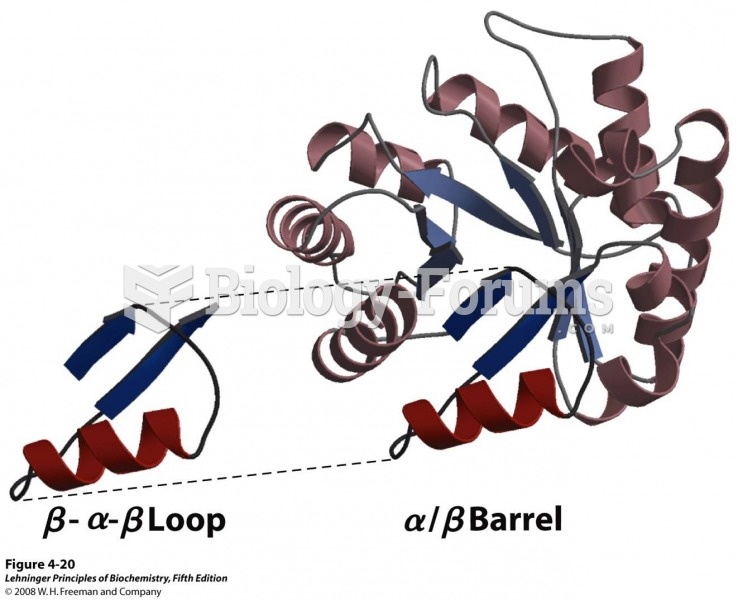|
|
|
In 2012, nearly 24 milliion Americans, aged 12 and older, had abused an illicit drug, according to the National Institute on Drug Abuse (NIDA).
The Centers for Disease Control and Prevention has released reports detailing the deaths of infants (younger than 1 year of age) who died after being given cold and cough medications. This underscores the importance of educating parents that children younger than 2 years of age should never be given over-the-counter cold and cough medications without consulting their physicians.
Aspirin is the most widely used drug in the world. It has even been recognized as such by the Guinness Book of World Records.
More than 30% of American adults, and about 12% of children utilize health care approaches that were developed outside of conventional medicine.
In the United States, congenital cytomegalovirus causes one child to become disabled almost every hour. CMV is the leading preventable viral cause of development disability in newborns. These disabilities include hearing or vision loss, and cerebral palsy.
 GI series. (a) Upper GI series begins with a barium swallow, barium shake, or barium meal. (b) Lower
GI series. (a) Upper GI series begins with a barium swallow, barium shake, or barium meal. (b) Lower
 The recent mass upheavals in Tunisia, Egypt, Libya, Yemen, and Syria gave political scientists a cha
The recent mass upheavals in Tunisia, Egypt, Libya, Yemen, and Syria gave political scientists a cha





